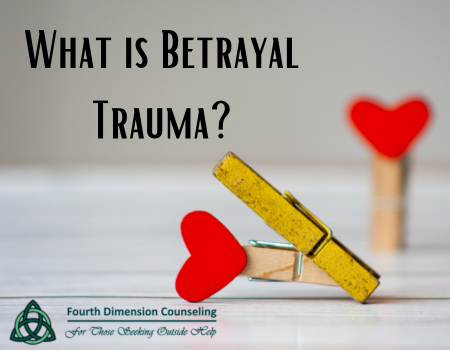Betrayal is a deeply unsettling experience that can reverberate through every aspect of an individual’s life, leaving behind profound emotional scars. When betrayal occurs within the context of a relationship, it can give rise to a specific type of psychological trauma known as betrayal trauma. This article delves into the concept of betrayal trauma, exploring its definition, manifestations, and the process of healing for those who have endured its effects.
 Definition
Definition
Betrayal trauma is a form of psychological distress that arises from the violation of trust and the rupture of a close relationship, often involving a betrayal by someone the individual depended on or trusted deeply. This type of trauma can occur in various contexts, such as romantic relationships, family dynamics, or friendships. It is characterized by a profound sense of hurt, shock, and emotional upheaval, often accompanied by feelings of vulnerability and powerlessness.
Manifestations of Betrayal Trauma:
-
Emotional Impact:
- Betrayal trauma can lead to intense emotional reactions, including feelings of anger, sadness, confusion, and profound disappointment.
- Individuals may struggle with trust issues, making it challenging to form new relationships or maintain existing ones.
-
Cognitive Effects:
- Betrayal trauma can disrupt cognitive processes, leading to intrusive thoughts, obsessive rumination, and difficulty concentrating.
- Individuals may experience a constant replaying of the betrayal in their minds, making it challenging to focus on daily tasks.
-
Physical Symptoms:
- The emotional distress caused by betrayal trauma can manifest in physical symptoms such as headaches, digestive issues, insomnia, or fatigue.
- Chronic stress related to the trauma can contribute to long-term health challenges if not addressed.
-
Impact on Self-Esteem:
- Betrayal can significantly impact an individual’s self-esteem and self-worth.
- The person who experiences betrayal may grapple with feelings of shame, guilt, and a distorted sense of identity.
Sources of Betrayal Trauma:
-
Infidelity:
- One of the most common sources of betrayal trauma is infidelity in a romantic relationship.
- Discovering a partner’s unfaithfulness can shatter trust and lead to profound emotional trauma.
-
Deception and Lies:
- Betrayal trauma may also stem from instances of deception, lies, or the concealment of significant information by someone close.
- The breach of honesty can erode the foundation of trust in a relationship.
-
Abuse and Exploitation:
- Betrayal trauma can result from experiences of abuse, whether emotional, physical, or sexual, especially when perpetrated by someone trusted.
- The violation of boundaries and trust can leave lasting emotional scars.
-
Broken Promises and Violated Expectations:
- Betrayal trauma can occur when promises are broken or expectations are violated in a significant and hurtful manner.
- Unrealized expectations can lead to feelings of disappointment and betrayal.
Healing from Betrayal Trauma:
-
Acknowledgment and Validation:
- Recognizing and validating the pain and emotions associated with betrayal is a crucial first step.
- Seeking support from trusted friends, family, or mental health professionals can provide validation and understanding.
-
Therapeutic Interventions:
- Therapy, especially modalities like individual counseling or couples therapy, can help individuals process and make sense of their experiences.
- Therapists can provide coping strategies, emotional support, and guidance toward healing.
-
Establishing Boundaries:
- Setting healthy boundaries is essential for preventing further emotional harm and rebuilding a sense of safety.
- Clear communication about personal limits can contribute to the restoration of trust.
-
Self-Care and Well-being:
- Prioritizing self-care, both physically and emotionally, is crucial for individuals recovering from betrayal trauma.
- Engaging in activities that bring joy, relaxation, and a sense of empowerment can aid the healing process.
-
Rebuilding Trust:
- Rebuilding trust, either within the same relationship or in future connections, is a gradual process.
- Open communication, transparency, and consistent actions that align with trustworthy behavior contribute to trust restoration.
Betrayal trauma is a profound emotional experience that can have lasting effects on an individual’s well-being. Recognizing the impact, seeking support, and actively engaging in the healing process are crucial steps toward reclaiming a sense of safety and rebuilding trust in relationships. Whether through therapy, self-reflection, or support networks, individuals can navigate the complex terrain of betrayal trauma and emerge stronger, more resilient, and with a renewed sense of self.
